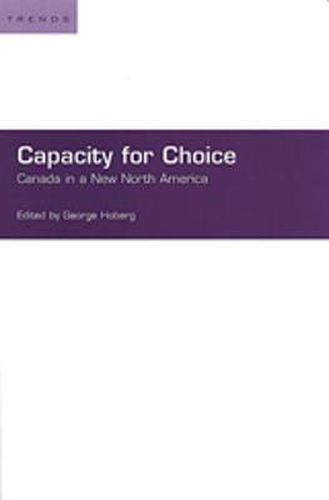Readings Newsletter
Become a Readings Member to make your shopping experience even easier.
Sign in or sign up for free!
You’re not far away from qualifying for FREE standard shipping within Australia
You’ve qualified for FREE standard shipping within Australia
The cart is loading…






Drawing together an interdisciplinary group of scholars, this collection of essays, part of the Trends Project of the Government of Canada, examines North American integration and its potential future impact on Canadian life. Trends in integration, knowledge gaps, and policy implications are analyzed in eight areas: trade, the labour market, the brain drain, macroeconomics, federalism, social welfare, the environment, and culture.
The contributors argue the consequences of continental integration have not been as formidable as widely believed. While some policy instruments have been surrendered in exchange for access to larger markets and pressures for harmonization have probably increased, Canada still retains significant room to maneuver, even in areas of policy most affected by growing economic integration. The most severe constraints imposed by globalization may be more in the mind than in a reality that is enormously complex and ambiguous. Canada has formidable capacities for domestic policy choices in a wide range of sectors. It is up to Canadians and their elected officials to chose how to exercise that freedom of choice.
$9.00 standard shipping within Australia
FREE standard shipping within Australia for orders over $100.00
Express & International shipping calculated at checkout
Drawing together an interdisciplinary group of scholars, this collection of essays, part of the Trends Project of the Government of Canada, examines North American integration and its potential future impact on Canadian life. Trends in integration, knowledge gaps, and policy implications are analyzed in eight areas: trade, the labour market, the brain drain, macroeconomics, federalism, social welfare, the environment, and culture.
The contributors argue the consequences of continental integration have not been as formidable as widely believed. While some policy instruments have been surrendered in exchange for access to larger markets and pressures for harmonization have probably increased, Canada still retains significant room to maneuver, even in areas of policy most affected by growing economic integration. The most severe constraints imposed by globalization may be more in the mind than in a reality that is enormously complex and ambiguous. Canada has formidable capacities for domestic policy choices in a wide range of sectors. It is up to Canadians and their elected officials to chose how to exercise that freedom of choice.